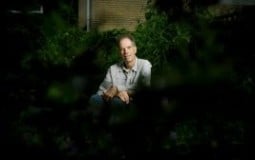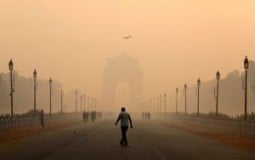Disinformation via Facebook also threatens the public debate in the Netherlands
 | 15-01-2022, 10:24 | English
| 15-01-2022, 10:24 | English
The protests against corona measures in 2020 in the Netherlands were coordinated and received massive support via Facebook groups. Protest leaders such as Michel Reijinga, Willem Engel and Elke de Klerk, and groups such as ‘Doctors Collective’, ‘No teen Corona Measures’, ‘Stop5GNL’, ‘ReVrouwLutie’ and others all found their supporters on Facebook. What were initially niche actors quickly became leaders for the masses, as influencers like Robert Jensen, Lange Frans, and even political leaders like Thierry Baudet fanned the flames of discontent.
The existence of these groups is not in itself a problem; everyone has the right to freedom of expression. It becomes problematic when only one particular type of storyline is enhanced. And that still happens, according to systematic research of Dutch-language Facebook groups.
Using Facebook’s own research tool CrowdTangle, it is clear that debunked documentaries, such as Janet Ossebaard’s Fall of Cabal, were popular on Dutch Facebook pages and groups. In fact, the number reshares of this documentary was the largest in the Netherlands after the United States. We brought this to Facebook’s attention in May 2021, but because “Q” and QAnon conspiracies were no longer seen as a threat to American democracy, their effect was ignored in other parts of the world.
Shock-respons
As of July 2021, we have been pointing out to Facebook that the company has been inconsistent in applying its policies in non-English speaking regions. Instead, the algorithms regularly amplify shocking voices – in the Netherlands those of the unvaccinated minority.
The government’s policy of imposing QR codes and vaccine passports appears to be a shock response to a perceived need to vaccinate everyone. The bloated social media noise from those who don’t want to vaccinate has created an imagined threat with government actors thinking commitments are needed.
For example, Minister Hugo de Jonge (Public Health, CDA) said that “too many people are not vaccinated and that therefore the measures are necessary”. Figures from the RIVM show that this is not true: 85 percent of the Dutch population has already been vaccinated and 90 percent of the people are prepared to be vaccinated. The inflated voice of 10 percent vaccine deniers thus drowns out not only the opinion of the 90 percent who would like to move on with life, but also the voice of vulnerable people who may really not be vaccinated.
The Dutch government thus demonstrates a lack of confidence in the rationality of Dutch citizens, while mistrust of the government itself, reinforced by the ‘social media amplification’, is also increasing. If Facebook and the other social media and messaging apps adversely affect the flow of information, it is easy to influence public opinion and puts public debate in the Netherlands at risk.
We seriously need to ask ourselves what it means that Facebook’s self-regulation and algorithm tweaks seem to be failing so miserably. Not just here, elsewhere too. Facebook’s algorithmic amplification has played a strong role in promoting hate speech and xenophobia in the likes of Myanmar, Sri Lanka, Ethiopia, and India. This tone has become the new normal and is seen as just a reflection of society, which is completely wrong for those who know the role of algorithms in amplification.
How long?
Are we moving towards a more dangerous environment of misogyny, racism and xenophobia? We can still feel safe in a western democracy like the Netherlands, but how long will it be before Facebook’s algorithms and inconsistent content moderation policies allow racist, misogynistic and xenophobic storylines to take hold of our largely free society?













